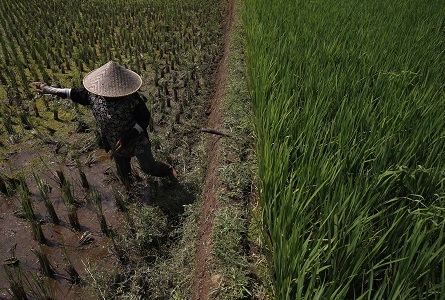
Carbon dioxide and climate change will lower the quality of food in the future, claims a new study.
Wheat, rice, maize and soybeans are key sources of nutrients for more than 2 billion people residing in poor countries. But with the rising amount of carbon dioxide in the air combined with climate change, nutrient level in crops is set to drop.
The study was conducted by Harvard University researchers and colleagues who fear that several major crops - such as wheat and rice - with good nutrient value will have low levels of proteins and zinc in the future.
"We found that rising levels of CO2 are affecting human nutrition by reducing levels of very important nutrients in very important food crops," said Prof Samuel Myers, the lead author of the study and researcher from Harvard University, United States in a news release.
"From a health viewpoint, iron and zinc are hugely important. Close to one third of the world's population already suffers from iron and zinc deficiencies, and according to this new study the rising levels of CO2 would only make things worse," Myers added.
For the experiment, the scientists compared the plants' nutrient levels to different concentrations of carbon dioxide. They studied 41 strains of plants grown at seven different sites across three continents.
Researchers found that wheat that grew in high carbon dioxide levels had 9 percent less zinc, 6 percent less protein and 5 percent less iron, compared to the ones that grew in low carbon dioxide levels.
Similarly, reduction in nutrient levels in rice, soybean and maize were also observed. Since, soybean is a legume, no decrease in protein levels was found.
However, the team of researchers was unable to explain the mechanism involved in the reduction of nutrient level in food plants.
Another recent study, conducted by researchers at University of California, showed that wheat plants exposed to high levels of gaseous substance like carbon dioxide tend to decrease nitrates assimilation into proteins, resulting in poor quality.
According to researchers, by 2050, the need for food production will increase by two-fold, in order to meet the increasing demands of the growing population. And though the crop yield will increase in the future, the rising global temperature will bring problems such as floods, drought and heatwaves.
The details of the study have been published in the journal Nature.













